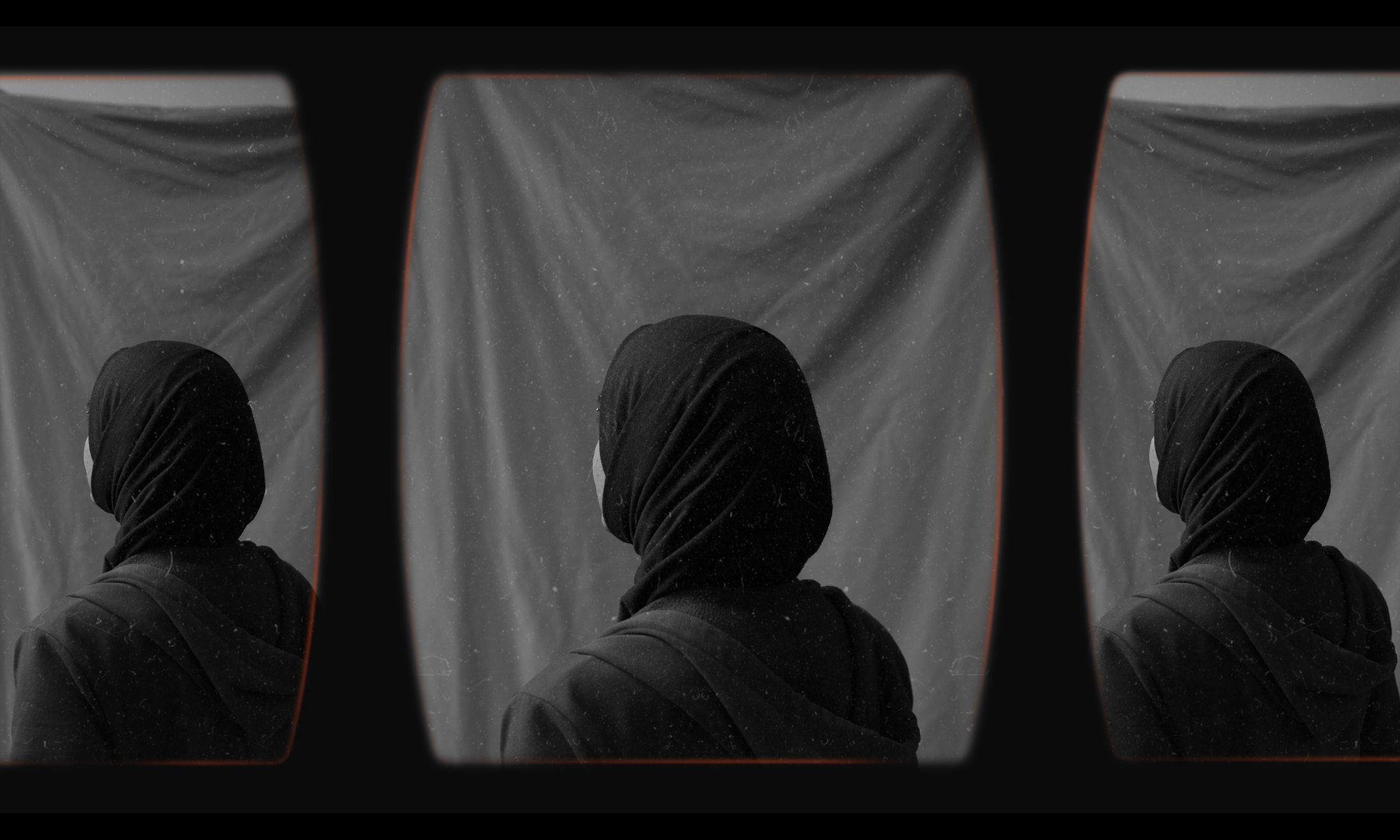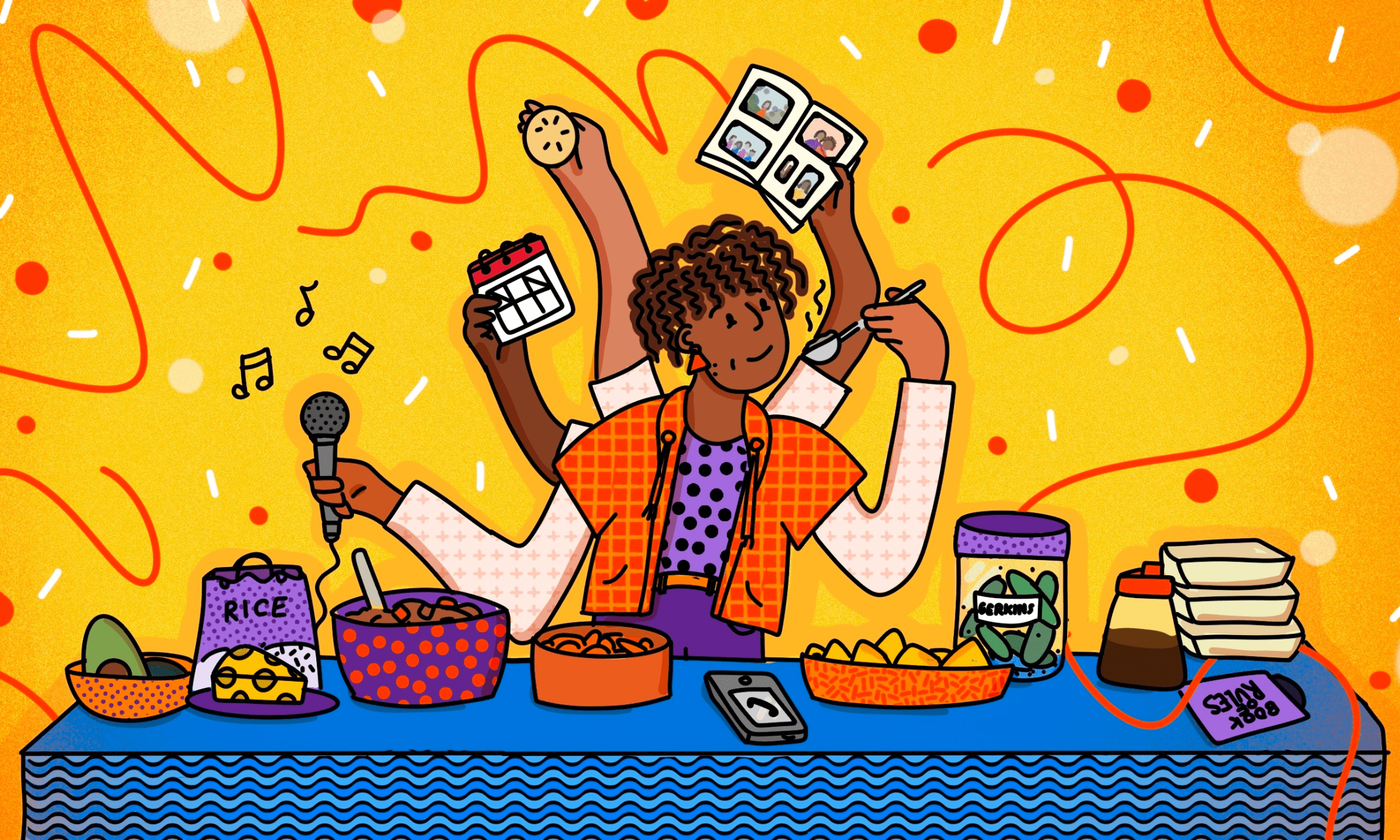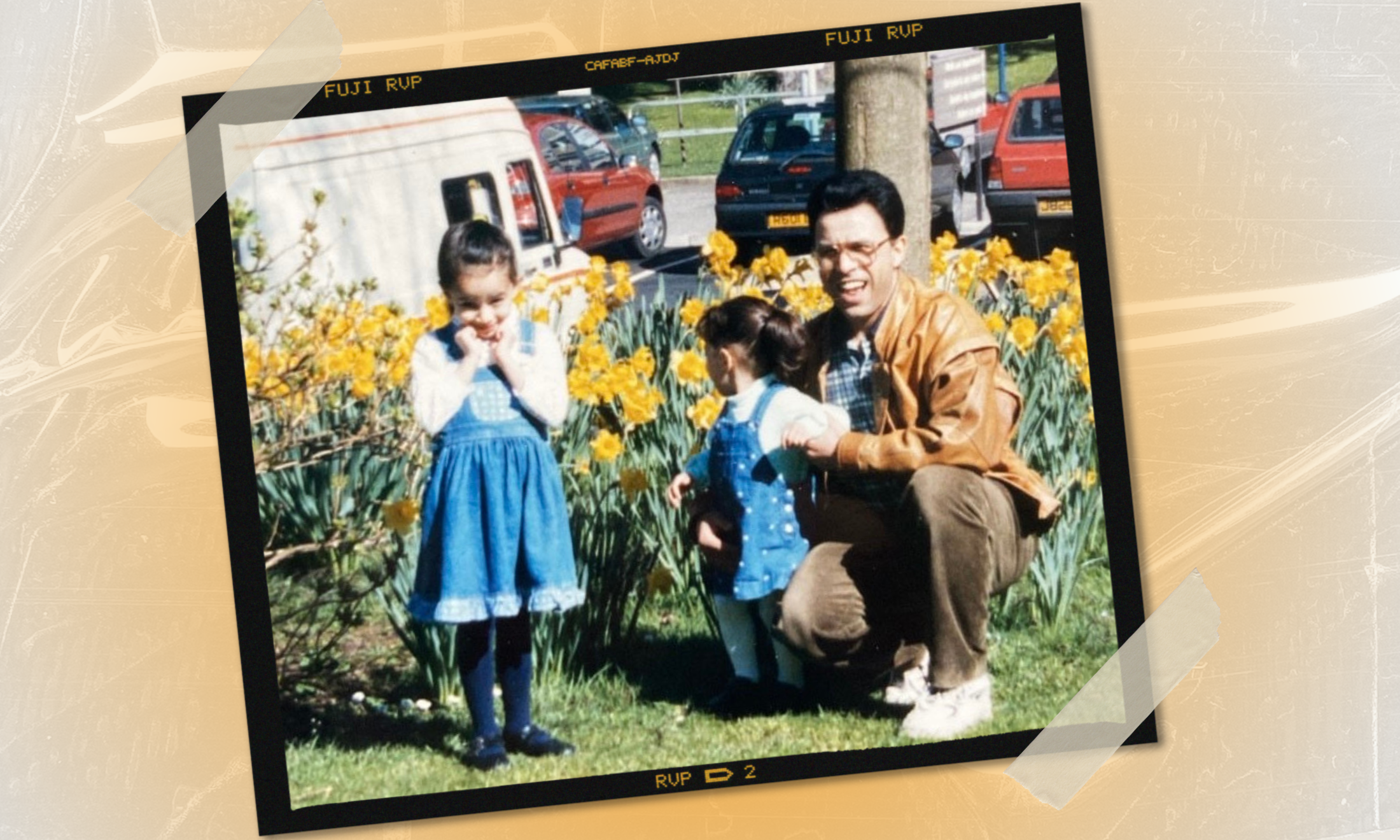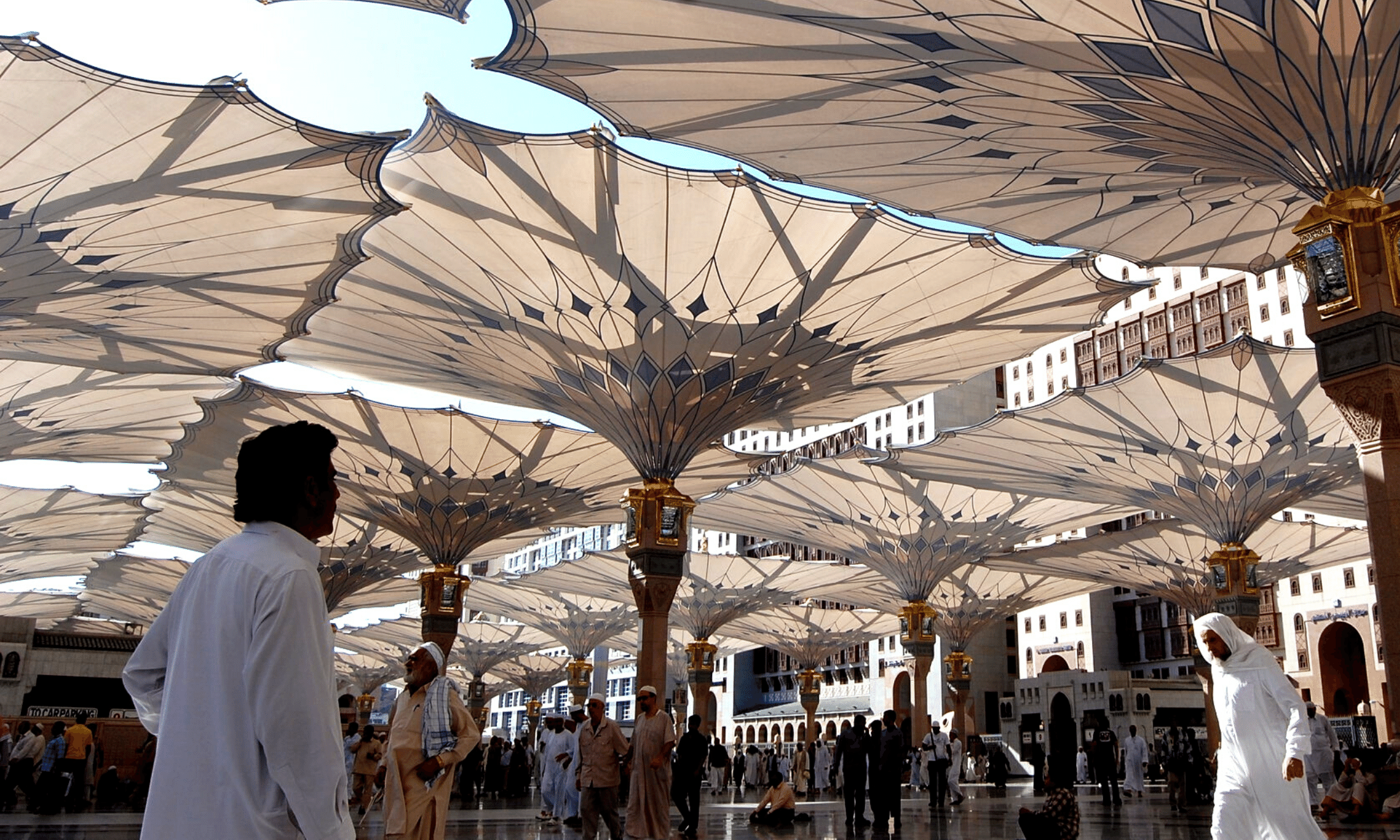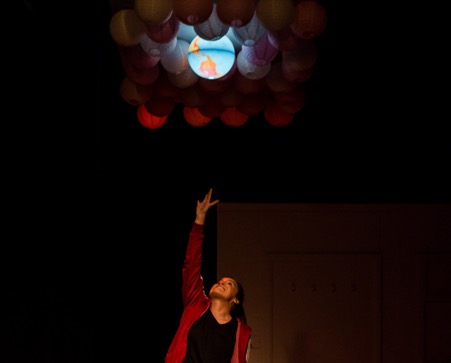
Ambreen Razia is behind the one-woman show Diary of a Hounslow Girl currently touring the UK, a play that revolves around Shahida, a 16 year old Muslim girl growing up in Hounslow and battling through the conflicting ideals from her own faith, friends, adolescence and dreams.
I went to see the play and laughed and cried with Shahida as she recounted the past few months via direct address to the audience and recorded messages to her family. Ambreen addresses the audience from Shahida’s room throughout, recalling all the events that led Shahida to a pivotal moment in her life – whether to trust in her family and life in Hounslow, or to escape. It’s a beautiful play that had the whole audience laughing out loud at one moment, and trying to hide tears from one another the next.
I caught up with Ambreen over tea afterwards to talk.
gal-dem: Where did Diary of a Hounslow Girl come from?
Ambreen Razia: The term ‘Hounslow girl’ is something that I heard in college. We were standing by the bus stop and I remember a friend pointing out a girl with a tight hijab, with big hoop earrings and fresh Air Maxes on and saying ‘oh my god it’s a Hounslow girl’.
Yeah – because I grew up in west London and I’ll be honest, when I saw Diary of a Hounslow Girl as the title and the poster of a young Muslim woman, I was quite hyped.
Yeah, it’s a stereotype that I think is known, but is maybe less discussed. You have a Chelsea girl, and Essex girl, but here’s a Hounslow girl. My passion is giving young people a voice, whether that’s through my writing or my stage or screen work. What’s important is getting across authentic voices that are rarely heard, that are missed or aren’t transcended onto our screens.
Before writing this I was working with a lot of young people at the ARC theatre, and I was facilitating discussion groups. I noticed that a lot of the women who came from immigrant communities (especially second generation), were finding it really difficult to ‘come of age’ as expected of western ideals. They were balancing two co-existing worlds, hiding a lot of the time, and trying to navigate both at once. I remember one girl telling me that two months felt like two years, just because of the hiding and secrecy associated with living as a teenager in London, but also the daughter in a tight knit immigrant community.
Yeah, I see what you mean. You see so many coming of age stories, but it’s so important to see this from the point of view of a young Muslim woman in London. That’s a group that doesn’t see much media attention, but when young Muslims do feature in the news, more often than not it’s not a favourable light that’s shone.
Yeah – the only widespread coverage I remember of what it means to be a young Muslim woman in the UK, and to grow up, was when those schoolgirls went to Syria. That “coming of age” story of adolescence and extremism was everywhere, but we don’t get to see what life is like for most young girls without it being told through this lens of radicalisation.
It’s funny, because when the play came out, and people saw the poster, that’s what they thought. They assumed it would be a story of extremism.
But the play tells a much broader story of what it is to be coming of age in London as a Muslim woman. What were the key issues you wanted to tackle with it?
The importance of generations is a big theme in the play. Shahida lives as a third generation Muslim girl, with her mother trying to bring her up with first generation ideals and structures. Shahida’s mother did what she thought was best to protect her daughter, and she did as best as she could from her own experiences. The idea is that to protect her, she had to ensure a tie to her roots, but things have changed for Shahida, and what might be considered a connection back to her roots is sometimes just an extra pressure and weight to carry.
The women that I took inspiration from in ARC, and also from my own childhood, had this feeling of claustrophobia. The framework that these women are given from their families and from the environments they find themselves in aren’t inspiring to them anymore. These women want to create their own memories and their own lives outside of what has been taught before. Shahida’s character was a way of exploring this idea.
I really loved it. I thought the play explored so much of what it is to grow up in London and to be surrounded by so many tight knit and often racially or nationality-divided communities whilst also trying to understand your own identity…
It’s a lot of pressure, to come to a country, with absolutely nothing, like my grandmother did. You come to a new country and you seek out what you know, your community and the people that you’re comfortable with. When my grandmother moved here it was the Pakistani community that helped her get her first home and job. This sense of loyalty and gratitude for helping you to assimilate is something that the first and second generations were trying to teach or show to Shahida, but her coming of age journey went a different way in Hounslow.
One thing I needed to get across was the conflict of having both a British identity and an immigrant identity. I remember asking a group of young women, ‘are you proud of your British identity?’ Half of them didn’t know what I meant, some refused to acknowledge it. Especially from countries that were colonised – the memories that are carried across by parents of what happened under British rule are hard to dispel. I wanted to explore why these young women were so resistant to a ‘British identity’.
Yeah, and there’s a recurring line in the play “You might be British, but you will never be English”. That resonated so much!
It’s a lot to do with these memories of what happened under British rule. Shahida has inherited her mother and her grandmother’s memories of British involvement in Pakistan, and of course that would affect your identity.
How do you feel about taking this play on tour – in the show I was at the audience was quite diverse, and I think those lines and some of the content really affected people differently? When the lens of London isn’t there, how do you think the audiences will react?
I think it will resonate with everyone, but I am interested to see how the story is received. It will be really, really interesting. It’s important that this story goes outside of London though. I know that the coming of age idea is universal, and really it could be Diary of a Derby Girl, Diary of a Suffolk Girl. It’s just an insight into a girl growing up, with the added pressures of religion and race.
You can watch the trailer for Diary of a Hounslow Girl here, and catch it throughout June across the UK at these venues:
Bristol: 3-4 June
Taunton: 7 June
Leicester: 9 June
Peterborough: 10 – 11 June
Hexham: 14-15 June
Liverpool: 16 June
Derby: 17-18 June
London: TBC @ Tara Arts

